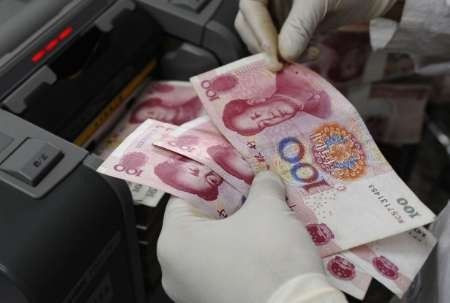Bankers Eye RMB Offshore Market As China Funding Costs Rise

Bankers are predicting a burgeoning offshore market for renminbi-denominated bonds as corporates increasingly turn to the Chinese currency to issue debt, making it only a matter of time before the renminbi is on a par with dollars, euros and yen.
Interest in the currency was underlined by higher-than-expected turnout at Thursday's Global Renminbi Bond Conference in London. The People's Bank of China and China's State Administration of Foreign Exchange were also in attendance, which was seen as a positive sign for the development of the renminbi offshore market and attracting clients beyond Asia.
The increased cost of funding within mainland China could also provide an incentive for non-Chinese companies operating there to raise cash in the offshore market, according to some, as corporates seek to reduce the cost of financing.
The potential to deploy the proceeds back into mainland China provides a better cost of funds than mainland China's bank market and also provides a hedge against any existing equity position in China as well as allowing easier trade settlement with Chinese counterparts, said Richard Li, head of North-Asia capital markets and treasury solutions at Deutsche Bank, which organised the conference.
This was the first time a conference such as this has been held outside Asia.
Investors and potential issuers from across the globe said that although mass bond issuance in renminbi has yet to happen, it cannot be far away given how rapidly market reforms have taken place in China, which is forecast to take over from the US as the world's number one economy in 2022.
In fact, investors outside of Asia are increasingly keen to increase their exposure to renminbi.
We need larger and longer-term issues as renminbi market is big enough for sizeable bonds, said a London-based emerging markets debt portfolio manager.
Another emerging markets portfolio manager who specifically looks after corporate bonds noted good quality borrowers with better bond structures and guarantees are always a hit with her firm regardless of the currency.
Hakan Wohlin, global head of debt origination at Deutsche Bank in London, believes the offshore renminbi bond market will become the largest one after the dollar and euro and will offer lower cost of funds than those available in the Chinese domestic market.
So far, McDonald's and Caterpillar from the US, Russia's VTB Bank, Sweden's Svenska Handelsbanken, Australia's ANZ, and European banks UBS, RBS and Deutsche Bank have printed offshore renminbi bonds, CDs with Russian Aluminium is also in the works.
Finally, while the market is currently largely limited to shorter tenors, as liquidity grows and market participation broadens larger sizes and longer maturity financings will become available.
The continued efforts of market participants and regulators will undoubtedly lead to a greater availability of derivative products, such as swaps and forwards, which will allow issuers and investors to better take advantage of this pool of liquidity, added Wohlin.
© Copyright Thomson Reuters 2024. All rights reserved.





















